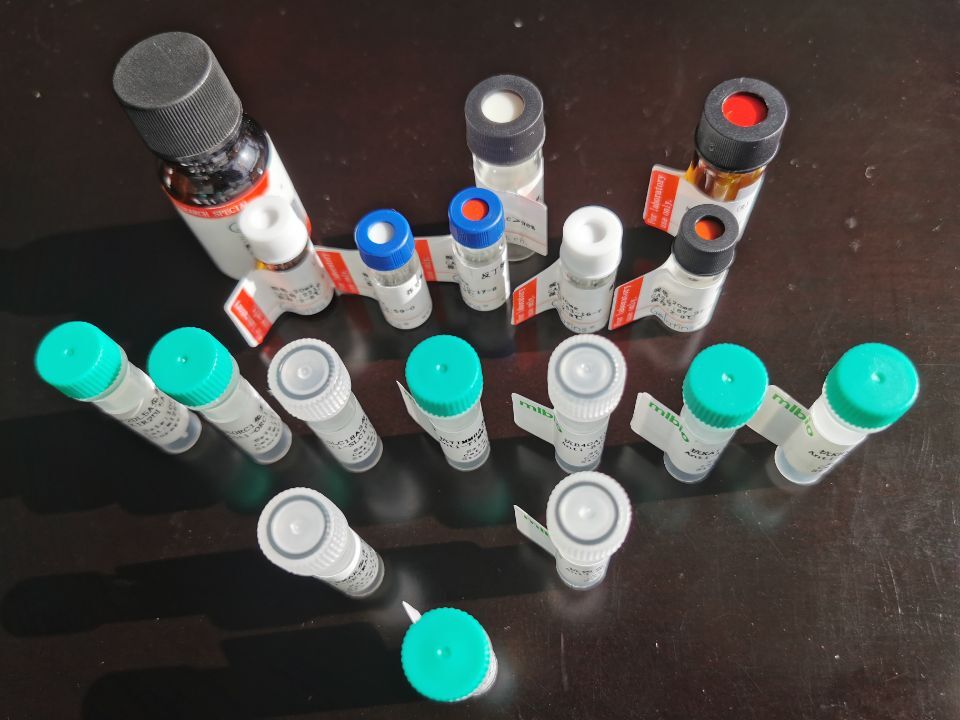中文名稱:ATP5PD抗原(重組蛋白)
英文名稱: ATP5PD Antigen (Recombinant Protein)
別 名: ATPQ; ATP5H
儲 存: 冷凍(-20℃)
相關類別: 抗原
概 述:
|
Fusion protein corresponding to a region derived from 1-137 amino acids of human ATP5PD |
|
Full name: |
ATP synthase peripheral stalk subunit d |
|
Synonyms: |
ATPQ; ATP5H |
|
Swissprot: |
O75947 |
|
Gene Accession: |
BC032245 |
|
Purity: |
>85%, as determined by Coomassie blue stained SDS-PAGE |
|
Expression system: |
Escherichia coli |
|
Tags: |
His tag C-Terminus, GST tag N-Terminus |
|
Background: |
Mitochondrial ATP synthase catalyzes ATP synthesis, utilizing an electrochemical gradient of protons across the inner membrane during oxidative phosphorylation. It is composed of two linked multi-subunit complexes: the soluble catalytic core, F1, and the membrane-spanning component, Fo, which comprises the proton channel. The F1 complex consists of 5 different subunits (alpha, beta, gamma, delta, and epsilon) assembled in a ratio of 3 alpha, 3 beta, and a single representative of the other 3. The Fo seems to have nine subunits (a, b, c, d, e, f, g, F6 and 8). This gene encodes the d subunit of the Fo complex. Alternatively spliced transcript variants encoding different isoforms have been identified for this gene. In addition, three pseudogenes are located on chromosomes 9, 12 and 15. |
 購物車
購物車 幫助
幫助
 021-54845833/15800441009
021-54845833/15800441009
